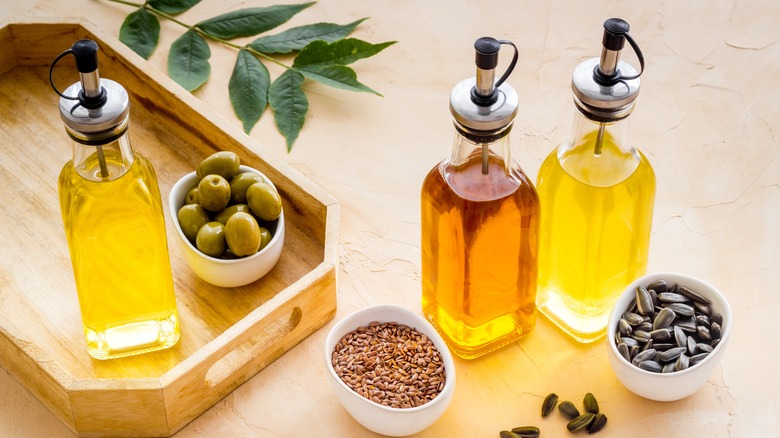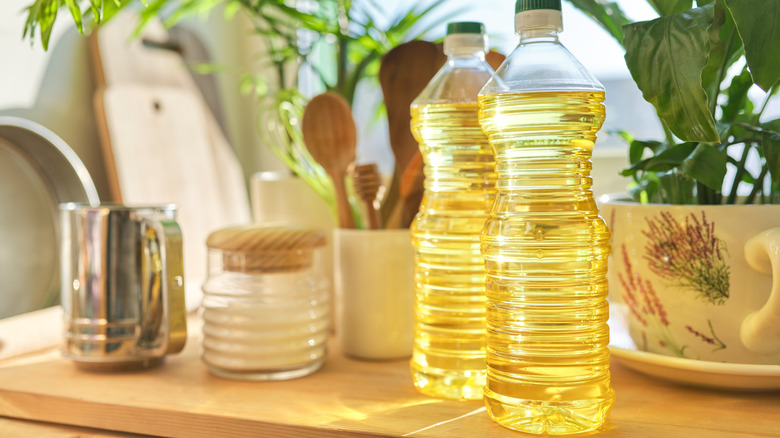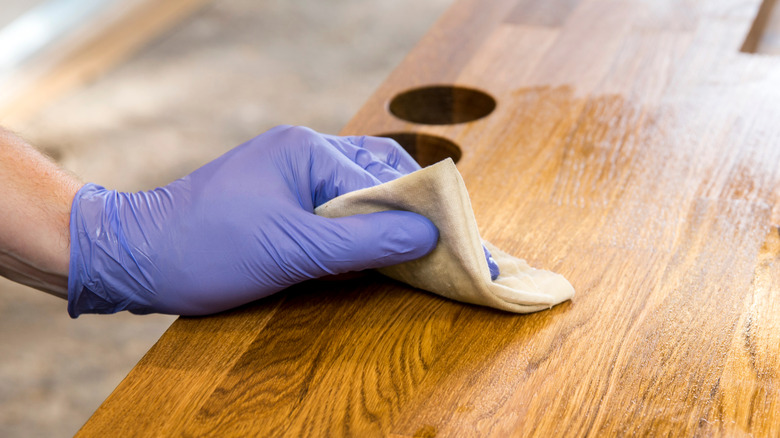The Lesser-Known Oil That Needs To Be In Every Kitchen
Most professional chefs and home cooks alike are intimately familiar with a variety of oils. We add vegetable oils to our cakes and muffins to make them moist. We use oils for frying almost anything under the sun, and if you are a lover of EVOO's mellow, fruity flavor, it's perfect for dressing salads. Many people even go so far as to make their own seasoned oils or pay extra for saffron, truffle, or sesame oils.
Some might say they have a love-hate relationship with oils. While an invaluable kitchen ingredient, it often splatters, coating every surface, making things sticky, and is quite difficult to completely clean up. If you have worked in a professional kitchen, you also know that it covers the cook, and can be a real pain to shower out of your hair.
Aside from the cooking oils, though, what if we told you there's another oil that can make your life easier and help you avoid many common kitchen problems?
An oil to keep in your kitchen that's not for cooking
Unlike most oils that you are probably familiar with that come from nuts, seeds, or fruits, this oil is entirely different. And it's not for cooking with or for eating either.
According to IPCS InChem, this oil mainly comes from petroleum but can be manufactured from many different sources and contain various compounds. However, it's available as a food-grade product, and companies use it to manufacture medications, cosmetics, and baby products. While doctors recognize a slight risk associated with ingesting this oil in specific populations, it's generally considered safe (via the National Library of Medicine).
If you haven't figured it out by now, we are talking about mineral oil. Used for eons to soften baby's skin and even recommended by the Mayo Clinic to treat dandruff, it's a multi-use oil that deserves a place in every kitchen. Of course, you might be asking yourself, "why on earth would I need mineral oil in the kitchen?"
Mineral oil can help with common kitchen problems
One of the main ways that mineral oil differs from regular cooking oil is that it's more resistant to oxidation (via Chemistry and Technology of Lubricants). Oxidation is when oils react with light, heat, and air resulting in change. Cooking oils have meager oxidative resistance (via Acta Scientific), which is why they break down so quickly. It's also why your countertops and appliances become sticky. The oils that collect on them oxidize and form tacky polymers.
Mineral oil, on the other hand, is more stable. It resists breaking down and changing forms. This makes it ideal for lubricating knives, as it can form a barrier to keeping the air and moisture away, preventing rust from forming on them and other metal surfaces. You can even use it to give any metal appliance or tabletop a high lustrous shine.
Mineral oil is also useful for treating wooden surfaces like butcher block countertops and cutting boards. On wooden surfaces, mineral oil will soak into the wood and keep it from drying out, but it won't go rancid. Just remember, as stressed by Serious Eats, to always use food-grade mineral oil in food preparation areas as other mineral oils can contain unhealthy compounds. All in all, this oil deserves a spot in your kitchen.


